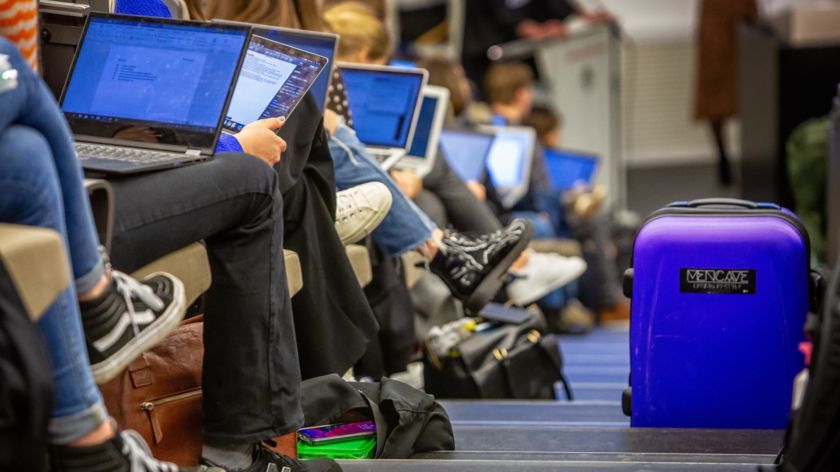Students about ChatGPT: ‘Not good for our writing skills’
-
 Foto: Dick van Aalst
Foto: Dick van Aalst
ChatGPT is also a hot topic in the lecture halls at Radboud University. Students Lars and Reinoud have already used the chat programme to translate their texts or turn them into academic writing. But blindly relying on the software they dare not.
ChatGPT is a language model developed by the company OpenAI, which uses artificial intelligence to generate texts based on questions or requests from users. In an article published on Voxweb today, three scientists shed light on the potential and limitations of the chatbot for higher education.
Lars and Reinoud, both 22 years old and students at the Nijmegen School of Management, say they mainly use ChatGPT to translate their own texts or turn them into more academic writing, and to answer descriptive questions.
According to both students, the added value of ChatGPT mainly lies in language and not in the answers the chatbot generates: by giving the chatbot clear instructions, the students say they save time. Reinoud is aware the language model can be have certain prejudices. ‘If a model is fed with racist texts, this can have consequences for the answers it generates’, he says.
Students and lecturers
While studying, Lars sometimes looks up definitions of topic terminology via ChatGPT: ‘Then you don’t have to scroll through advertisements and multiple articles like with other search engines’, he says. ‘You just get one concrete definition explained in simple words.’ Still, he dares not blindly trust ChatGPT’s texts because there is no check for factual inaccuracies. ‘ChatGPT hardly mentions any sources’, he observes.
From experience, Lars knows that the way you formulate a question you ask the chatbot is very important. ‘Depending on that, you get better or worse answers in terms of content’, he says. ‘Lecturers could teach students to ask the programme better questions, because you will only get a good answer if your question is also well formulated.’
‘Students should avoid using ChatGPT’
According to Reinoud, the rise of software such as ChatGPT could lead to a decline in students’ writing skills. Reinoud: ‘As a student, you are here to learn to think critically and clearly write down your thoughts. Although I have used the programme in the past, I do think that students should avoid using it.’
Lecturers, on the other hand, could use the software more often, Reinoud says, for example to generate closed exam questions. ‘They are better able to check the contents of a generated text for inaccuracies’, he says.
Brightspace
According to Lars, the university is afraid that students will abuse the software, for example by having exams or theses written by the chatbot. ‘With ChatGPT, students can hand in their assignments without thinking critically themselves’, he says.
Although Lars understands that fear, he does not think the university should just ignore the software. According to him, the chatbot could also be used in teaching support, for example. ‘For example, you could integrate the programme into the digital learning environment Brightspace, by having it answer students’ questions about deadlines’, he says.



